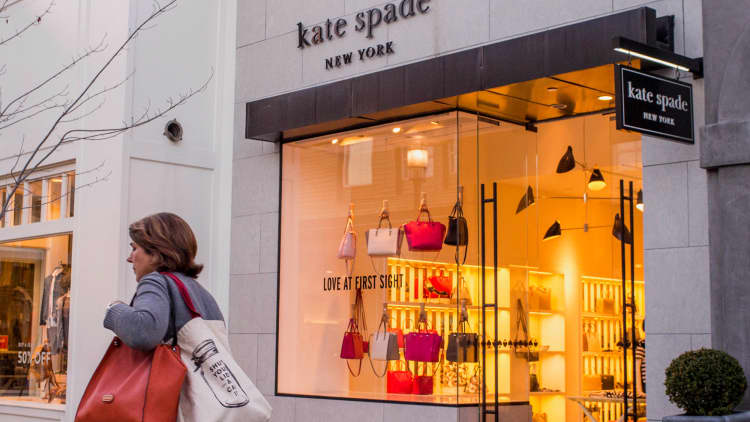
Monday's major mergers and acquisitions news likely isn't Coach's last deal, one retail analyst predicts.
The luxury handbag maker announced Monday its agreement to buy smaller rival Kate Spade in a proposed transaction valued at $2.4 billion. Rumors had already surfaced that the deal was looming, with many analysts writing in recent notes about Coach's acquisition strategy and how it could help the retailer boost sales.
"I think Coach is buying a customers' list ... that helps penetrate a larger audience," Nomura Instinet analyst Simeon Siegel told CNBC's 'Power Lunch' in an interview Monday. "[It's] buying a status."
Instead of focusing on one brand, Coach is creating a "house of modern luxury brands," which will be operated entirely independent of each other, Siegel said.
In 2015, Coach bought designer footwear company Stuart Weitzman for as much as $574 million, at a time when handbag sales were particularly weak and

Further, the analyst pointed out that owning multiple brands allows a company like Coach to "grow and succeed, even when a brand is missing a trend." It's why the European luxuries companies, for example, are viewed differently than those in the U.S., Siegel added.
Coach has made no secret of its push to make itself known as a global, multibrand luxury company.
Though the Kate Spade brand resonates particularly well among millennial shoppers, the company has been struggling lately, as a whole, to generate sales. A more favorable macroeconomic environment, though, could give Kate Spade "a bit more headroom to execute its growth strategy," and it will help Coach grow its reach globally, Siegel has said about the combination of the two.
"From my perspective, it's looking to shift the burden of success from lying squarely on fashion trends and instead merging the backends of multiple brands to be able to leverage the infrastructure ... supply chain," Siegel added.
In his latest note to clients, Seigel upped his price target on shares of Coach to $45 and reiterated a buy rating on the stock.
"It's rare to see a [retail] company execute on an acquisition," Siegel told CNBC. "Coach just did that."


